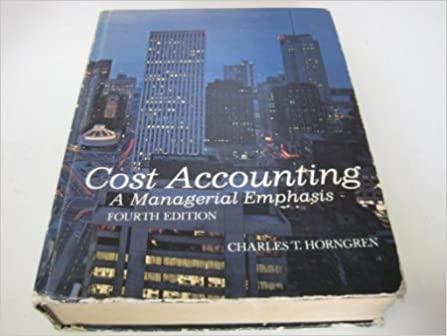Answered step by step
Verified Expert Solution
Question
1 Approved Answer
Required information [The following information applies to the questions displayed below.] In 2023, Carson is claimed as a dependent on his parents' tax return. His





Required information [The following information applies to the questions displayed below.] In 2023, Carson is claimed as a dependent on his parents' tax return. His parents report taxable income of $200,000 (married filing jointly). Carson's parents provided most of his support. What is Carson's tax liability for the year in each of the following alternative circumstances? Use Tax Rate Schedule, Dividends and Capital Gains Tax Rates for reference. Note: Do not round intermediate calculations. Round your answer to 2 decimal ploces. a. Carson is 17 years old at year-end and earned $15,300 from his summer job and part-time job after school. This was his only source of income V Required information [The following information applies to the questions displayed below.] In 2023, Carson is claimed as a dependent on his parents' tax return. His parents report taxable income of $200,000 (married filing jointly). Carson's parents provided most of his support. What is Carson's tax liability for the year in each of the following alternative circumstances? Use Tax Rate Schedule, Dividends and Capital Gains Tax Rates for reference. Note: Do not round intermediate calculations. Round your answer to 2 decimal places. b. Carson is 23 years old at year-end. He is a full-time student and earned $15,300 from his summer internship and part-time job. He also received $5,060 of qualified dividend income 2023 Tax Rate Schedules Individuals Schedule X-Single \begin{tabular}{|c|c|c|} \hline If taxable income is over: & But not over: & The tax is: \\ \hline S 0 & $11,000 & 10% of taxable income \\ \hline$11,000 & $44,725 & $1,100 plus 12% of the excess over $11,000 \\ \hline$44,725 & $95,375 & $5,147 plus 22% of the excess over $44,725 \\ \hline$95,375 & $182,100 & $16,290 plus 24% of the excess over $95,375 \\ \hline$182,100 & $231,250 & $37,104 plus 32% of the excess over $182,100 \\ \hline$231,250 & $578,125 & $52,832 plus 35% of the excess over $231,250 \\ \hline$578,125 & - & $174,238.25 plus 37% of the excess over $578,125 \\ \hline \end{tabular} Schedule Y-1-Married Filing Jointly or Qualifying surviving spouse \begin{tabular}{|c|c|c|} \hline If taxable income is over: & But not over: & \multicolumn{1}{c|}{ The tax is: } \\ \hline S & $22,000 & 10% of taxable income \\ \hline$22,000 & $89,450 & $2,200 plus 12% of the excess over $22,000 \\ \hline$89,450 & $190,750 & $10,294 plus 22% of the excess over $89,450 \\ \hline$190,750 & $364,200 & $32,580 plus 24% of the excess over $190,750 \\ \hline$364,200 & $462,500 & $74,208 plus 32% of the excess over $364,200 \\ \hline$462,500 & $693,750 & $105,664 plus 35% of the excess over $462,500 \\ \hline$693,750 & - & $186,601.5 plus 37% of the excess over $693,750 \\ \hline \end{tabular} Schedule Z-Head of Household \begin{tabular}{|c|c|c|} \hline If taxable income is over: & But not over: & The tax is: \\ \hlineS0 & $15,700 & 10% of taxable income \\ \hlineS15,700 & $59,850 & $1,570 plus 12% of the excess over $15,700 \\ \hlineS59,850 & $95,350 & $6,868 plus 22% of the excess over $59,850 \\ \hlineS95,350 & $182,100 & $14,678 plus 24% of the excess over $95,350 \\ \hline$182,100 & $231,250 & $35,498 plus 32% of the excess over $182,100 \\ \hline$231,250 & $578,100 & $51,226 plus 35% of the excess over $231,250 \\ \hline$578,100 & & $172,623.5 plus 37% of the excess over $578,100 \\ \hline \end{tabular} Schedule Y-2-Married Filing Separately \begin{tabular}{|c|c|c|} \hline If taxable income is over: & But not over: & The tax is: \\ \hline$0 & $11,000 & 10% of taxable income \\ \hline$11,000 & $44,725 & $1,100 plus 12% of the excess over $11,000 \\ \hline$44,725 & $95,375 & $5,147 plus 22% of the excess over $44,725 \\ \hline$95,375 & $182,100 & $16,290 plus 24% of the excess over $95,375 \\ \hline$231,250 & $231,250 & $37,104 plus 32% of the excess over $182,100 \\ \hline$346,875 & $346,875 & $52,832 plus 35% of the excess over $231,250 \\ \hline & - & $93,300,75 plus 37% of the excess over $346,875 \\ \hline \end{tabular} Tax Rates for Net Capital Gains and Qualified Dividends *This rate applies to the net capital gains and qualified dividends that fall within the range of tarable income specified in the table (net capital gains and qualified an income last for this purpose)
Step by Step Solution
There are 3 Steps involved in it
Step: 1

Get Instant Access to Expert-Tailored Solutions
See step-by-step solutions with expert insights and AI powered tools for academic success
Step: 2

Step: 3

Ace Your Homework with AI
Get the answers you need in no time with our AI-driven, step-by-step assistance
Get Started


